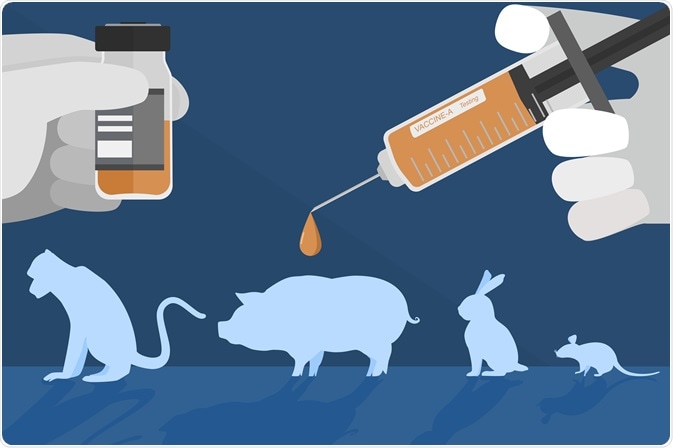The issues that animals have to face are different dependent on age, the species and overall health of each animal. Common medical problems in animals include:
Parasitic Infections: ticks and fleas aswell with mites and worms can be a problem for your pet, causing various health issues. Preventing parasites and having regular check-ups are essential. Skin Conditions- Skin issues like allergies, dermatitis, and hot spots can cause irritation and discomfort to animals.
Ear infections - Ear infections is a frequent problem in pets and cats with ear canals that are floppy. It can cause discomfort, and also hearing issues.
Dental Problems - Dental issues like tooth decay gum infection, as well as periodontal issues can have a negative impact on the health of animals.
Respiratory illnesses- Upper respiratory infection such as pneumonia or bronchitis can be a problem for animals living in stressed environments.
Arthritis and Joint Problems- older animals, as with some breeds that are large, are susceptible to arthritis and joint issues, which can result in pain and decreased mobility.
Obesity: Animals who are overweight are at risk of various diseases, such as diabetes, heart disease, and joint problems.
Other digestive problems can result from dietary issues or infections, as well as other ailments.
Cancer - Like animals, animals may develop cancerous tumors that may require treatment, such as radiation, surgery or chemotherapy.
Injuries and Wounds - Injuries and wounds from fights, accidents or falls can lead to soft tissue injuries, such as fractures. This requires medical treatment. Regularly scheduled veterinary exams and vaccinations against parasites and a balanced diet can help to prevent these medical conditions. Also, seek prompt medical attention if your pet shows any signs of sickness or discomfort. Take a look at the most beautiful herbs good for dogs for site tips.

What Are The Best Supplements, Vitamins And Probiotics For Dogs?
The choice of supplements, vitamins and probiotics to give your dog must be determined based on the individual needs as well any recommendations given by a veterinarian. Although it's important to offer a balanced, healthy diet to your dog, some may benefit from adding supplements. Here are a few of the most popular supplements that your dog could benefit from and the possible benefits they could bring:
Antioxidants. Vitamin C and E are antioxidants that can assist in protecting the cells of your dog from damage caused by oxidation and improve the immune system of your dog. Calcium and Vitamin D- These are important for maintaining strong teeth and bones especially for growing puppies and large breed dogs.
Fiber Supplements. For dogs suffering from digestive issues like constipation and diarrhea fiber supplements that are soluble can help regulate bowel motions.
Green-Lipped mussel extract - This supplement is rich in omega-3 fatty acids and is a great way to reduce joint inflammation in dogs with arthritis.
Coenzyme (CoQ10): CoQ10 is a potent antioxidant that helps to maintain heart health. It can also help produce energy in the cells.
Milk Thistle This herb is used to support the health of the liver in dogs that have liver disease or who are taking medicines that affect it.
Consult with your veterinarian prior to giving your pet any supplements. They will provide advice that is tailored to your dog's unique needs. The dosage can vary depending on your dog's size, age, and health status. Supplementation that is excessively high in calories can be dangerous. It is important to select supplements made by reputable businesses as their quality and safety of the products can vary. Always follow the dosage instructions and watch for reactions that could be adverse. Contact a veterinarian right away if any symptoms or reaction seem unusual. A well-balanced and veterinarian-recommended diet is typically the best way to meet your dog's nutritional needs, and supplements should only be used when necessary and under professional guidance. Take a look at the Best pet herbal supplements for dogs with sleep issues for blog examples.
How Common Is Kidney Insufficiency, Skin Allergies And Yeast Infections In Dogs? What Is The Best Treatment?
The frequency of yeast infections, as well as kidney disease in dogs varies depending on factors like breed and health, as well as age etc. Here's a quick overview of these conditions and the possible treatments.
Kidney Failure (Renal Disease)Prevalence: Kidney failure is more rare than skin problems, but it can be a problem for dogs, particularly when they get older. It can either be sudden (sudden) or chronic.
The symptoms include increased or decreased urination.
Treatment - Treatment will depend on the severity and type of kidney disease. Acute kidney failure typically requires hospitalization and intensive care. Treat chronic kidney disease by dietary modifications, medications to control blood pressure, and therapies that help support kidney function. This is a condition that progresses, so early diagnosis and treatment is crucial.
It is crucial to be aware that these conditions could affect some dogs but not all. The frequency of these conditions varies from breeds and between individuals. Regular veterinary check-ups, a balanced diet, and preventive measures (such as flea control and proper hygiene) can help reduce the risk of these conditions. It's important to consult your veterinarian if you believe that your pet might be experiencing a medical condition, such as yeast infections, skin allergy or kidney issues. This will help determine the exact cause and formulate a treatment strategy. The earlier intervention is crucial to improving your pet's health and quality of living. Check out the best pet athletic support supplements for blog recommendations.
